Mozambique president to undertake 6 state visits in 2026 – Canada, Botswana, Angola, Russia, ...
Mozambique: Talapa explains Frelimo manifesto in Nampula – AIM report

Picture: Rádio Comunitária de Monapo
The head of the central brigade of the ruling Frelimo Party to the northern Mozambican province of Nampula, Margarida Talapa, launched her party’s election campaign in what is the largest of the eleven provincial constituencies on Saturday with a motorcade through the centre of Nampula city.
She told the crowd that Frelimo’s governance priorities for the next five years “will rest on four pillars, firstly the consolidation of national unity, peace, reconciliation and democracy; second, the consolidation of the democratic rule of law and decentralisation; thirdly, the promotion of sustainable economic development and social justice; and fourthly, regional and international cooperation”.
Talapa said Frelimo believes that national unity must constantly be nourished, since it is fundamental for the attainment of definitive peace in Mozambique.
The Mozambican state, she added, is a gain for all Mozambicans and a guarantee of the fundamental rights and freedoms of the people. “In this area, Frelimo believes that the public administration and the institutions of the administration of justice and of law and order should guarantee the full enjoyment of the rights and freedoms of citizen, peace, tolerance, social harmony and peaceful coexistence”, she said.
In addition to the three main parties (Frelimo, Renamo and the Mozambique Democratic Movement, MDM), Nampula also witnessed a march in support of Mario Albino, the leader and presidential candidate of AMUSI (Acton of the United Movement for All-Round Salvation), the only minor party which managed to collect the 10,000 supporting signatures needed to stand in the presidential election.
AMUSI is a breakaway from the MDM, and was founded in Nampula, where Albino was once the MDM delegate.
On the AMUSI Saturday march, Albino complained to reporters that he has not yet received the promised funds from the state to support his campaign. The National Elections Commission (CNE) admits that it has not yet been able to disburse the money to all the candidates and parties running.
The government will subsidise the election campaign to the tune of 180 million meticais (about 2.95 million US dollars, at current exchange rates). This sum breaks down neatly into 60 million meticais for the presidential election, 60 million for the parliamentary election, and 60 million for the election of the ten provincial assemblies.
The money will be disbursed by the Ministry of Economy and Finance in three instalments. 50 per cent will be made available 21 days before the start of the official election campaign on 31 October. So the parties should already have collected this money. But this did not happen for constraints which have yet to be explained by the CNE.
The next two instalments will each be 25 per cent, and will only be disbursed after the parties concerned have accounted for how they spent the first instalment. They must present valid proof of expenditure, including invoices and receipts, and only when the CNE is satisfied that these documents are genuine will they receive the second, and then the third instalment.
The state subsidy is intended to supplement the money which parties raise from their own members and supporters, including contributions from foreign parties and NGOs.



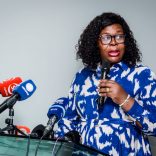
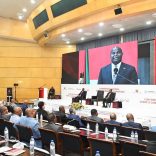
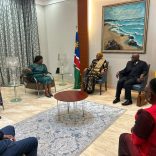
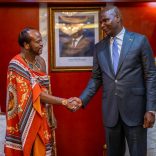
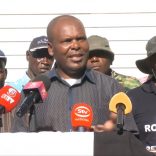




Leave a Reply
Be the First to Comment!
You must be logged in to post a comment.
You must be logged in to post a comment.